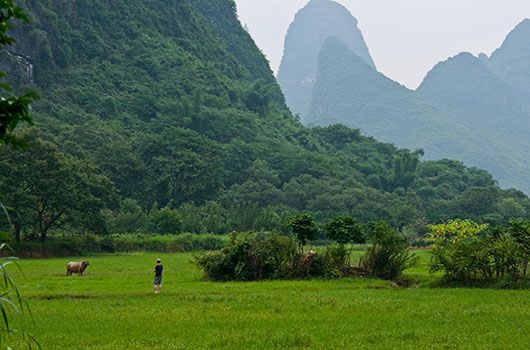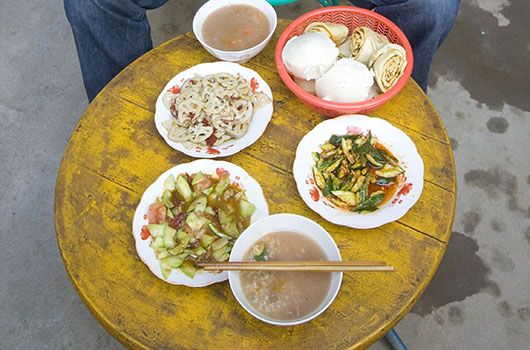Activities
- Step back in time with a visit to Zhujiajiao, a traditional water town, known for its narrow, cobbled lanes, stone bridges, canals, and rich history.
- Choose a weekend away to learn more about cultures in different regions of China. Destinations may include:
- Historic Xi’an – Explore the ancient capital city at the western end of the Silk road and burial place of China’s first emperor.
- Beijing – Experience the Forbidden City and the Great Wall with a visit to the modern capital.
- Huangshan – See majestic Yellow Mountain in southern Anhui Province and visit Hongcun Village, where the movie Crouching Tiger, Hidden Dragon was filmed.
Excursions
Silk Road Trade Route – fall. This famous premodern route enabled the exchange of merchandise, as well as religion, culture, and art. Students travel from the head of the northern route in Xi’an to Dunhuang, the City of Sands, a desert oasis at the junction of the northern and southern trade routes. Ideal for majors in Chinese language and culture, literature, history, religion, anthropology, and geography.
Tea and Horse Road – spring. This ancient network of mountain paths connected the tea-growing regions of southwestern China to Burma and India by mule caravan through the Yunnan and Sichuan provinces and Tibet. Students may travel to Lijiang and Shangri-La, seat of a Tibetan autonomous prefecture near the border of Tibet. Ideal for majors in Chinese language and culture, literature, history, religion, anthropology, and geography.
Global Business in China – Hong Kong and the Pearl River Delta Region. Explore one of the world's leading international financial centers and see how Hong Kong retains different political and economic systems from mainland China, with a diverse international population. Students visit companies, attend lectures on business development and industry, take a city tour, cruise Victoria Harbor, and visit a local Daoist temple. Ideal for majors in international business, finance, and economics.
Convergence of Cultures – Taiwan. Some of the most traditional forms of Chinese culture are preserved on Taiwan, which maintains a thriving civil society with a democratic political system and capitalist economy. See why this culture is described as a blend of Chinese and Japanese cultures, with traditional Confucian beliefs and contemporary Western values. Visit the National Palace Museum, Taipei 101, aboriginal communities, Kaoshiung, and the night markets of Keelung. Ideal for majors in international affairs, political science, and economics.
Projects
Volunteering. Opt to travel to rural interior China, where you can give your time and energy while you connect with villagers and other Chinese people.
Kick your Chinese language skills into high gear.
- One-on-one classes. In addition to daily classes, you'll meet individually with your language instructor for 30 minutes, four times a week.
- Peer language tutors. Join a qualified ECNU student for one-on-one tutorials of at least one hour, twice a week.
- Chinese language clinic. Professional Chinese language instructors lend a hand with unique problems in your study with 90-minute sessions, offered four times a week.
- Target language activities. Join CIEE teachers, peer tutors, and resident staff in an informal setting that encourages students to use their Chinese language skills.
Internships
Study abroad students participating in the Organizational Internship course will be assigned to an internship project with a company in Shanghai. The internship sponsors, which vary each term depending on participating organizations and available positions, may include local Chinese companies and multinational companies, as well as international small- and medium-sized enterprises and nonprofit organizations. Course curriculum includes class introduction, placement interview, coached work, and final presentation to earn three academic credits. See the courses section for more detail. Students enrolling in the internship course are required by Chinese law to change his/her issued student visa to a “Residence Permit” once on site, in order to legally pursue an internship in China. The application process for a residence permit includes: approval from Chinese host institution, East China Normal University, a physical exam at a designated clinic in Shanghai, and a visa-change application to the Chinese authorities. Fees associated with this process are estimated to be $150 USD. Students pursuing the internship are responsible for paying this fee.


